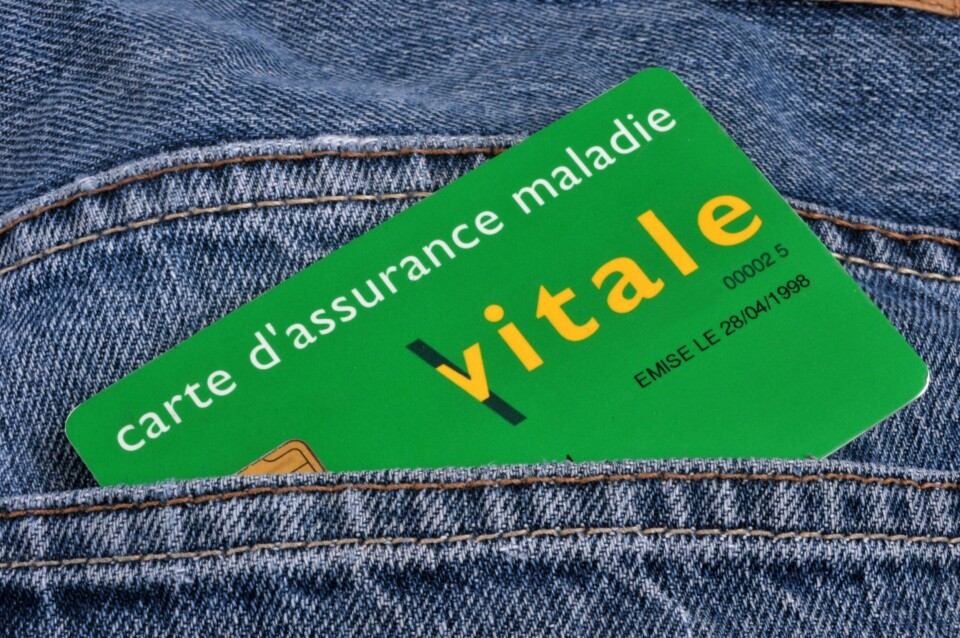-
Many Société Générale customers to be charged additional fees from April
There is some good news for international banking and instant transfers, however
-
Why gas prices in France are rising in April - and by how much
It comes after six consecutive monthly rises. Try these tips to reduce your bills
-
New notaire data suggests easing of Paris property crisis
Property experts have talked of ‘easing pressure’ and ‘breathing space’ after a four-year slump
France mulls merging ID and health cards: How could new plan work?
Critics say the idea would be ‘technically impossible’. But the system is already in place in other European countries

France is considering whether to combine people’s identity and health cards as part of a wider plan to cut social security fraud.
This system is already in place in Belgium and other European countries.
Social security fraud in France
Exact figures are difficult to determine, but social security fraud in France is estimated to cost the state €6billion-€8billion per year, says public accounts authority la Cour des comptes.
Public Accounts Minister Gabriel Attal presented a vast anti-social fraud plan this week to Le Parisien.
He is aiming to double the number of investigations into social fraud by 2027 compared to 2022 levels. This would mean clawing back €3billlion in fraudulent payments.
He said: “I want to move gradually towards merging the carte Vitale and the identity card into a single secure card, as is the case in Belgium, Portugal and Sweden.
“I am launching a pre-planning mission to determine the timetable and procedures. Obviously, this project cannot be envisaged until card production times return to normal.”
Read also: What is a carte Vitale and why do I need one in France?
For example, the minister wants to crack down on cases such as pensions still being paid to people living outside of the EU, even after they have died. He also said he wants to “strengthen” residency conditions for people living in France who want to “benefit from social allocations”.
This includes requiring the recipient to live in France for nine months of the year, up from the six months previously required, to benefit from family or elderly benefits. Access to housing benefit - Aide Personnalisée au Logement -, which previously required eight months, will also require nine months per year.
Mr Attal said the state had already increased social fraud returns by 35% in the past five years. The new plan will go further, with an investment of €1billion in new IT systems, as well as creating 1,000 extra jobs, the minister said.
Read also: Conditions of use set out for France’s healthcare e-carte Vitale app
‘Technically impossible’?
Despite Mr Attal’s announcement, the plan has attracted some criticism in government already. One official at the Interior Ministry told BFMTV that it would be ‘technically impossible’ to combine ID cards with cartes Vitale.
“This is demonstrably technically impossible to put into place,” he said. He also claimed that “the [data protection and digital freedoms authority] la CNIL is profoundly opposed”.
He said: “We need to watch that we don’t interfere with data protection and individual freedoms. The solution [to fraud] is to create a biometric carte Vitale, which has already been voted for.”
So far, however, the idea of a biometric carte Vitale has not come to fruition, mainly because of the expected cost.
But Mr Attal was confident in his plan, saying: “We can imagine a model where, from a certain date, when you renew your ID card, it also automatically becomes your carte Vitale [too].”
Read more: Warning over new scam on French carte Vitale healthcare cards
And a report by l'Inspection générale des Finances et l'Inspection générales des affaires sociales, entitled ‘Les évolutions de la carte Vitale’, concluded: “ The conditions required for such a scenario listed by the CNIL seem to be possible to comply with, pending a thorough study.”
It also said that the “healthcare professionals and healthcare establishments questioned were in favour” of the idea because they “see it as a source of administrative simplification and extra security for care”.
How does the system work in Belgium?
Belgium is France’s closest neighbour that already has a combined ID and healthcare card system in place. The new eID (electronic ID card) replaced the old carte SIS, from January 2014.
People who go to hospital only need to present a single card to access care; their eID card. Using this card, the hospital can identify the person, verify their data, and check that they are eligible for national healthcare.
The card also avoids billing and reimbursement errors and helps mutuelles (health insurance companies) to process claims more easily. It is also designed to prevent healthcare fraud.
Residents with a foreigner’s residence card (carte d’étranger électronique) can use that. Children under 12 also have a similar system, with a ‘kids-ID’ card or a healthcare ISI+ card.
Hospitals are still rolling out the system nationwide, but all hospitals will be required to check patients’ IDs electronically by January 2024. So far, 70% of pharmacies use the system too.
Related articles
How to get a social security number and carte Vitale in France
Healthcare explainer: How France’s new e-carte Vitale will work
























